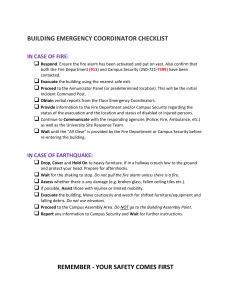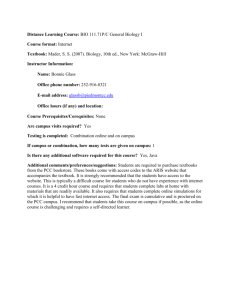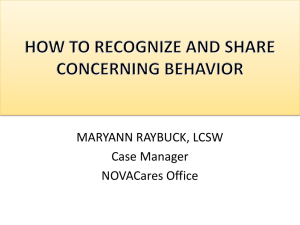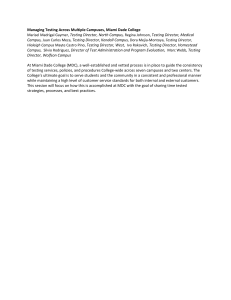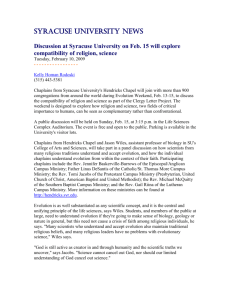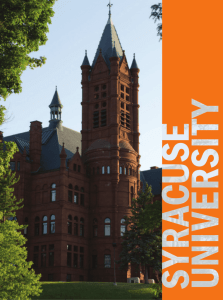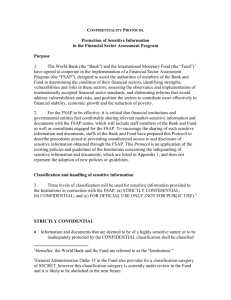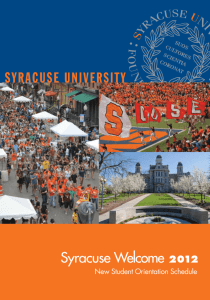emergencymemo - Syracuse University
advertisement
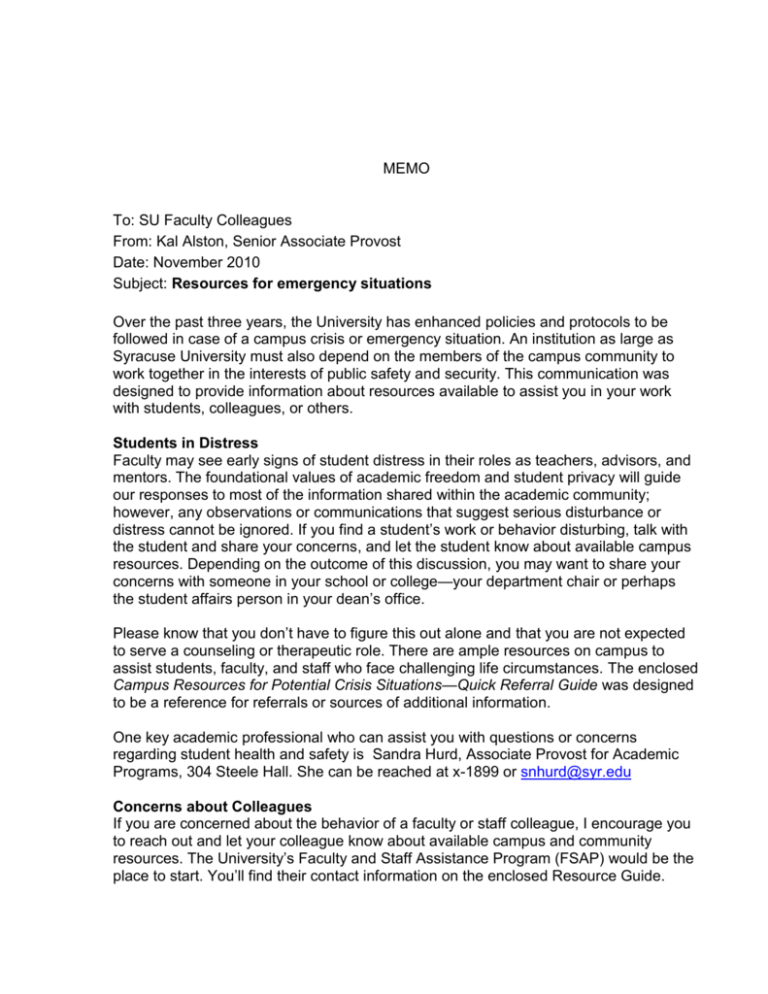
MEMO To: SU Faculty Colleagues From: Kal Alston, Senior Associate Provost Date: November 2010 Subject: Resources for emergency situations Over the past three years, the University has enhanced policies and protocols to be followed in case of a campus crisis or emergency situation. An institution as large as Syracuse University must also depend on the members of the campus community to work together in the interests of public safety and security. This communication was designed to provide information about resources available to assist you in your work with students, colleagues, or others. Students in Distress Faculty may see early signs of student distress in their roles as teachers, advisors, and mentors. The foundational values of academic freedom and student privacy will guide our responses to most of the information shared within the academic community; however, any observations or communications that suggest serious disturbance or distress cannot be ignored. If you find a student’s work or behavior disturbing, talk with the student and share your concerns, and let the student know about available campus resources. Depending on the outcome of this discussion, you may want to share your concerns with someone in your school or college—your department chair or perhaps the student affairs person in your dean’s office. Please know that you don’t have to figure this out alone and that you are not expected to serve a counseling or therapeutic role. There are ample resources on campus to assist students, faculty, and staff who face challenging life circumstances. The enclosed Campus Resources for Potential Crisis Situations—Quick Referral Guide was designed to be a reference for referrals or sources of additional information. One key academic professional who can assist you with questions or concerns regarding student health and safety is Sandra Hurd, Associate Provost for Academic Programs, 304 Steele Hall. She can be reached at x-1899 or snhurd@syr.edu Concerns about Colleagues If you are concerned about the behavior of a faculty or staff colleague, I encourage you to reach out and let your colleague know about available campus and community resources. The University’s Faculty and Staff Assistance Program (FSAP) would be the place to start. You’ll find their contact information on the enclosed Resource Guide. You may feel the need to speak with someone about your concerns, and FSAP could help you to assess the situation. Your department chair is a good local resource for such concerns. If you feel more comfortable speaking with someone outside your department, Sonya Williams, Director, Academic Human Resources, is available at x-9095 or sywillia@syr.edu. Of course, please do not hesitate to contact me, kalston@syr.edu, or x-5525, if you have any questions. We all want a safe and intellectually rich environment in which to work, study, and learn. Your familiarity with available resources and your willingness to help students and colleagues connect with professional help can make an important contribution to the health and safety of our campus community. Enc: 1


